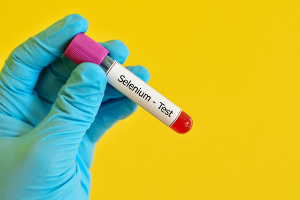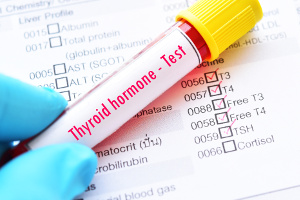afterLoad (456.22KB) (4.07ms)
afterInitialise (1.27MB) (37.65ms)
afterRoute (870.3KB) (18.55ms)
beforeRenderComponent com_tags (20.38KB) (5.32ms)
afterRenderComponent com_tags (1.28MB) (72.9ms)
afterDispatch (31.34KB) (2.58ms)
beforeRenderRawModule mod_articles_category (READ MORE...) (388.12KB) (13.06ms)
Before Access::preloadComponents (all components) (56.7KB) (3.62ms)
After Access::preloadComponents (all components) (103.05KB) (4.04ms)
Before Access::getAssetRules (id:8 name:com_content) (840B) (19μs)
After Access::getAssetRules (id:8 name:com_content) (7.05KB) (42μs)
afterRenderRawModule mod_articles_category (READ MORE...) (5.7KB) (122ms)
beforeRenderRawModule mod_tags_popular (Search) (4.81KB) (32μs)
afterRenderRawModule mod_tags_popular (Search) (3.13KB) (44.64ms)
beforeRenderRawModule mod_custom (Remember to download Heart Healthy Seniors) (816B) (28μs)
afterRenderRawModule mod_custom (Remember to download Heart Healthy Seniors) (4.86KB) (231μs)
beforeRenderRawModule mod_custom (Get additionel and more detailed knowledge ) (752B) (14μs)
afterRenderRawModule mod_custom (Get additionel and more detailed knowledge ) (1.67KB) (28μs)
beforeRenderRawModule mod_custom (BOOST YOUR IMMUNE DEFENSE) (608B) (11μs)
afterRenderRawModule mod_custom (BOOST YOUR IMMUNE DEFENSE) (928B) (22μs)
beforeRenderRawModule mod_custom (Are you taking supplements) (736B) (9μs)
afterRenderRawModule mod_custom (Are you taking supplements) (1.03KB) (20μs)
beforeRenderRawModule mod_custom (Antiaging) (720B) (8μs)
afterRenderRawModule mod_custom (Antiaging) (1.02KB) (18μs)
beforeRenderRawModule mod_custom (Exercise) (720B) (9μs)
afterRenderRawModule mod_custom (Exercise) (1.02KB) (19μs)
beforeRenderRawModule mod_custom (Check this before you buy a Q10 product) (752B) (9μs)
afterRenderRawModule mod_custom (Check this before you buy a Q10 product) (944B) (18μs)
beforeRenderRawModule mod_custom (Chronic fatigue tied Alan to his bed but Q10 capsules saved him:) (245.53KB) (4.48ms)
afterRenderRawModule mod_custom (Chronic fatigue tied Alan to his bed but Q10 capsules saved him:) (960B) (66μs)
beforeRenderModule mod_custom (Chronic fatigue tied Alan to his bed but Q10 capsules saved him:) (768B) (6μs)
afterRenderModule mod_custom (Chronic fatigue tied Alan to his bed but Q10 capsules saved him:) (1.3KB) (105μs)
beforeRenderRawModule mod_custom (Cholesterol-lowering without side effects:) (368B) (17μs)
afterRenderRawModule mod_custom (Cholesterol-lowering without side effects:) (2.19KB) (29μs)
beforeRenderModule mod_custom (Cholesterol-lowering without side effects:) (752B) (2μs)
afterRenderModule mod_custom (Cholesterol-lowering without side effects:) (1.28KB) (32μs)
beforeRenderModule mod_articles_category (READ MORE...) (21.32KB) (372μs)
afterRenderModule mod_articles_category (READ MORE...) (1.25KB) (42μs)
beforeRenderModule mod_tags_popular (Search) (5.17KB) (13μs)
afterRenderModule mod_tags_popular (Search) (1.27KB) (26μs)
beforeRenderModule mod_custom (Remember to download Heart Healthy Seniors) (1.17KB) (11μs)
afterRenderModule mod_custom (Remember to download Heart Healthy Seniors) (1.3KB) (23μs)
beforeRenderModule mod_custom (Get additionel and more detailed knowledge ) (368B) (9μs)
afterRenderModule mod_custom (Get additionel and more detailed knowledge ) (1.3KB) (22μs)
beforeRenderModule mod_custom (BOOST YOUR IMMUNE DEFENSE) (224B) (9μs)
afterRenderModule mod_custom (BOOST YOUR IMMUNE DEFENSE) (1.28KB) (22μs)
beforeRenderModule mod_custom (Are you taking supplements) (352B) (8μs)
afterRenderModule mod_custom (Are you taking supplements) (1.28KB) (22μs)
beforeRenderModule mod_custom (Antiaging) (336B) (8μs)
afterRenderModule mod_custom (Antiaging) (1.27KB) (21μs)
beforeRenderModule mod_custom (Exercise) (336B) (9μs)
afterRenderModule mod_custom (Exercise) (1.25KB) (21μs)
beforeRenderModule mod_custom (Check this before you buy a Q10 product) (352B) (8μs)
afterRenderModule mod_custom (Check this before you buy a Q10 product) (1.28KB) (21μs)
beforeRenderRawModule mod_menu (Main menu-US) (20.94KB) (1.54ms)
afterRenderRawModule mod_menu (Main menu-US) (152.66KB) (3.22ms)
beforeRenderModule mod_menu (Main menu-US) (720B) (5μs)
afterRenderModule mod_menu (Main menu-US) (4.36KB) (65μs)
beforeRenderRawModule mod_languages (Sprogskift) (3.44KB) (20μs)
afterRenderRawModule mod_languages (Sprogskift) (26.82KB) (3.38ms)
beforeRenderModule mod_languages (Sprogskift) (720B) (6μs)
afterRenderModule mod_languages (Sprogskift) (5.31KB) (22μs)
beforeRenderRawModule mod_finder () (6.34KB) (19μs)
afterRenderRawModule mod_finder () (214.16KB) (5.65ms)
beforeRenderModule mod_finder () (704B) (5μs)
afterRenderModule mod_finder () (5.79KB) (36μs)
beforeRenderRawModule mod_custom () (6.62KB) (1.17ms)
afterRenderRawModule mod_custom () (22.64KB) (900μs)
beforeRenderModule mod_custom () (704B) (6μs)
afterRenderModule mod_custom () (1.23KB) (67μs)
beforeRenderRawModule mod_menu (Main menu-US) (5.07KB) (151μs)
afterRenderRawModule mod_menu (Main menu-US) (5.8KB) (656μs)
beforeRenderModule mod_menu (Main menu-US) (720B) (3μs)
afterRenderModule mod_menu (Main menu-US) (1.25KB) (48μs)
beforeRenderRawModule mod_languages (Sprogskift Mobil) (912B) (16μs)
afterRenderRawModule mod_languages (Sprogskift Mobil) (3.89KB) (1.71ms)
beforeRenderModule mod_languages (Sprogskift Mobil) (720B) (5μs)
afterRenderModule mod_languages (Sprogskift Mobil) (1.27KB) (37μs)
beforeRenderRawModule mod_finder () (2.3KB) (11μs)
afterRenderRawModule mod_finder () (6.29KB) (1.69ms)
beforeRenderModule mod_finder () (704B) (5μs)
afterRenderModule mod_finder () (1.23KB) (48μs)
beforeRenderRawModule mod_custom () (8.66KB) (184μs)
afterRenderRawModule mod_custom () (904B) (148μs)
beforeRenderModule mod_custom () (704B) (3μs)
afterRenderModule mod_custom () (2.43KB) (26μs)
beforeRenderRawModule mod_custom () (688B) (83μs)
afterRenderRawModule mod_custom () (896B) (94μs)
beforeRenderModule mod_custom () (704B) (2μs)
afterRenderModule mod_custom () (2.71KB) (21μs)
afterRender (225.71KB) (7.83ms)
| 1 x afterRenderRawModule mod_articles_category (READ MORE...) (5.7KB) (33.46%) | 121.95ms |
| 1 x afterRenderComponent com_tags (1.28MB) (20%) | 72.90ms |
| 1 x afterRenderRawModule mod_tags_popular (Search) (3.13KB) (12.25%) | 44.64ms |
| 1 x afterInitialise (1.27MB) (10.33%) | 37.65ms |
| 1 x afterRoute (870.3KB) (5.09%) | 18.55ms |
| 1 x beforeRenderRawModule mod_articles_category (READ MORE...) (388.12KB) (3.58%) | 13.06ms |
| 1 x afterRender (225.71KB) (2.15%) | 7.83ms |
| 1 x afterRenderRawModule mod_finder () (214.16KB) (1.55%) | 5.65ms |
| 1 x beforeRenderComponent com_tags (20.38KB) (1.46%) | 5.32ms |
| 1 x beforeRenderRawModule mod_custom (Chronic fatigue tied Alan to his bed but Q10 capsules saved him:) (245.53KB) (1.23%) | 4.48ms |
| 1 x afterLoad (456.22KB) (1.12%) | 4.07ms |
| 1 x After Access::preloadComponents (all components) (103.05KB) (1.11%) | 4.04ms |
| 1 x Before Access::preloadComponents (all components) (56.7KB) (0.99%) | 3.62ms |
| 1 x afterRenderRawModule mod_languages (Sprogskift) (26.82KB) (0.93%) | 3.38ms |
| 1 x afterRenderRawModule mod_menu (Main menu-US) (152.66KB) (0.88%) | 3.22ms |
| 1 x afterDispatch (31.34KB) (0.71%) | 2.58ms |
| 1 x afterRenderRawModule mod_languages (Sprogskift Mobil) (3.89KB) (0.47%) | 1.71ms |
| 1 x afterRenderRawModule mod_finder () (6.29KB) (0.46%) | 1.69ms |
| 1 x beforeRenderRawModule mod_menu (Main menu-US) (20.94KB) (0.42%) | 1.54ms |
| 1 x beforeRenderRawModule mod_custom () (6.62KB) (0.32%) | 1.17ms |
| 1 x afterRenderRawModule mod_custom () (22.64KB) (0.25%) | 900μs |
| 1 x afterRenderRawModule mod_menu (Main menu-US) (5.8KB) (0.18%) | 656μs |
| 1 x beforeRenderModule mod_articles_category (READ MORE...) (21.32KB) (0.1%) | 372μs |
| 1 x afterRenderRawModule mod_custom (Remember to download Heart Healthy Seniors) (4.86KB) (0.06%) | 231μs |
| 1 x beforeRenderRawModule mod_custom () (8.66KB) (0.05%) | 184μs |
| 1 x beforeRenderRawModule mod_menu (Main menu-US) (5.07KB) (0.04%) | 151μs |
| 1 x afterRenderRawModule mod_custom () (904B) (0.04%) | 148μs |
| 1 x afterRenderModule mod_custom (Chronic fatigue tied Alan to his bed but Q10 capsules saved him:) (1.3KB) (0.03%) | 105μs |
| 1 x afterRenderRawModule mod_custom () (896B) (0.03%) | 94μs |
| 1 x beforeRenderRawModule mod_custom () (688B) (0.02%) | 83μs |
| 1 x afterRenderModule mod_custom () (1.23KB) (0.02%) | 67μs |
| 1 x afterRenderRawModule mod_custom (Chronic fatigue tied Alan to his bed but Q10 capsules saved him:) (960B) (0.02%) | 66μs |
| 1 x afterRenderModule mod_menu (Main menu-US) (4.36KB) (0.02%) | 65μs |
| 1 x afterRenderModule mod_menu (Main menu-US) (1.25KB) (0.01%) | 48μs |
| 1 x afterRenderModule mod_finder () (1.23KB) (0.01%) | 48μs |
| 1 x After Access::getAssetRules (id:8 name:com_content) (7.05KB) (0.01%) | 42μs |
| 1 x afterRenderModule mod_articles_category (READ MORE...) (1.25KB) (0.01%) | 42μs |
| 1 x afterRenderModule mod_languages (Sprogskift Mobil) (1.27KB) (0.01%) | 37μs |
| 1 x afterRenderModule mod_finder () (5.79KB) (0.01%) | 36μs |
| 1 x beforeRenderRawModule mod_tags_popular (Search) (4.81KB) (0.01%) | 32μs |
| 1 x afterRenderModule mod_custom (Cholesterol-lowering without side effects:) (1.28KB) (0.01%) | 32μs |
| 1 x afterRenderRawModule mod_custom (Cholesterol-lowering without side effects:) (2.19KB) (0.01%) | 29μs |
| 1 x beforeRenderRawModule mod_custom (Remember to download Heart Healthy Seniors) (816B) (0.01%) | 28μs |
| 1 x afterRenderRawModule mod_custom (Get additionel and more detailed knowledge ) (1.67KB) (0.01%) | 28μs |
| 1 x afterRenderModule mod_tags_popular (Search) (1.27KB) (0.01%) | 26μs |
| 1 x afterRenderModule mod_custom () (2.43KB) (0.01%) | 26μs |
| 1 x afterRenderModule mod_custom (Remember to download Heart Healthy Seniors) (1.3KB) (0.01%) | 23μs |
| 1 x afterRenderRawModule mod_custom (BOOST YOUR IMMUNE DEFENSE) (928B) (0.01%) | 22μs |
| 1 x afterRenderModule mod_custom (Get additionel and more detailed knowledge ) (1.3KB) (0.01%) | 22μs |
| 1 x afterRenderModule mod_custom (BOOST YOUR IMMUNE DEFENSE) (1.28KB) (0.01%) | 22μs |
| 1 x afterRenderModule mod_custom (Are you taking supplements) (1.28KB) (0.01%) | 22μs |
| 1 x afterRenderModule mod_languages (Sprogskift) (5.31KB) (0.01%) | 22μs |
| 1 x afterRenderModule mod_custom (Antiaging) (1.27KB) (0.01%) | 21μs |
| 1 x afterRenderModule mod_custom (Exercise) (1.25KB) (0.01%) | 21μs |
| 1 x afterRenderModule mod_custom (Check this before you buy a Q10 product) (1.28KB) (0.01%) | 21μs |
| 1 x afterRenderModule mod_custom () (2.71KB) (0.01%) | 21μs |
| 1 x afterRenderRawModule mod_custom (Are you taking supplements) (1.03KB) (0.01%) | 20μs |
| 1 x beforeRenderRawModule mod_languages (Sprogskift) (3.44KB) (0.01%) | 20μs |
| 1 x Before Access::getAssetRules (id:8 name:com_content) (840B) (0.01%) | 19μs |
| 1 x afterRenderRawModule mod_custom (Exercise) (1.02KB) (0.01%) | 19μs |
| 1 x beforeRenderRawModule mod_finder () (6.34KB) (0.01%) | 19μs |
| 1 x afterRenderRawModule mod_custom (Antiaging) (1.02KB) (0%) | 18μs |
| 1 x afterRenderRawModule mod_custom (Check this before you buy a Q10 product) (944B) (0%) | 18μs |
| 1 x beforeRenderRawModule mod_custom (Cholesterol-lowering without side effects:) (368B) (0%) | 17μs |
| 1 x beforeRenderRawModule mod_languages (Sprogskift Mobil) (912B) (0%) | 16μs |
| 1 x beforeRenderRawModule mod_custom (Get additionel and more detailed knowledge ) (752B) (0%) | 14μs |
| 1 x beforeRenderModule mod_tags_popular (Search) (5.17KB) (0%) | 13μs |
| 1 x beforeRenderRawModule mod_custom (BOOST YOUR IMMUNE DEFENSE) (608B) (0%) | 11μs |
| 1 x beforeRenderModule mod_custom (Remember to download Heart Healthy Seniors) (1.17KB) (0%) | 11μs |
| 3 x beforeRenderModule mod_custom () (704B) (0%) | 11μs |
| 1 x beforeRenderRawModule mod_finder () (2.3KB) (0%) | 11μs |
| 2 x beforeRenderModule mod_finder () (704B) (0%) | 10μs |
| 1 x beforeRenderRawModule mod_custom (Are you taking supplements) (736B) (0%) | 9μs |
| 1 x beforeRenderRawModule mod_custom (Check this before you buy a Q10 product) (752B) (0%) | 9μs |
| 1 x beforeRenderModule mod_custom (Get additionel and more detailed knowledge ) (368B) (0%) | 9μs |
| 1 x beforeRenderModule mod_custom (BOOST YOUR IMMUNE DEFENSE) (224B) (0%) | 9μs |
| 1 x beforeRenderRawModule mod_custom (Exercise) (720B) (0%) | 9μs |
| 1 x beforeRenderModule mod_custom (Exercise) (336B) (0%) | 9μs |
| 1 x beforeRenderModule mod_custom (Are you taking supplements) (352B) (0%) | 8μs |
| 1 x beforeRenderModule mod_custom (Antiaging) (336B) (0%) | 8μs |
| 1 x beforeRenderModule mod_custom (Check this before you buy a Q10 product) (352B) (0%) | 8μs |
| 2 x beforeRenderModule mod_menu (Main menu-US) (720B) (0%) | 8μs |
| 1 x beforeRenderRawModule mod_custom (Antiaging) (720B) (0%) | 8μs |
| 1 x beforeRenderModule mod_custom (Chronic fatigue tied Alan to his bed but Q10 capsules saved him:) (768B) (0%) | 6μs |
| 1 x beforeRenderModule mod_languages (Sprogskift) (720B) (0%) | 6μs |
| 1 x beforeRenderModule mod_languages (Sprogskift Mobil) (720B) (0%) | 5μs |
| 1 x beforeRenderModule mod_custom (Cholesterol-lowering without side effects:) (752B) (0%) | 2μs |
 According to a University of Zurich study published in Nature Aging, daily intake of just one gram of omega-3 from supplements or a serving of fish can slow down the aging processes and extend lifespan. The effect can even be improved by combining omega-3 fatty acids with larger doses of vitamin D supplements and strength training.
According to a University of Zurich study published in Nature Aging, daily intake of just one gram of omega-3 from supplements or a serving of fish can slow down the aging processes and extend lifespan. The effect can even be improved by combining omega-3 fatty acids with larger doses of vitamin D supplements and strength training.








 Magnesium is important for numerous physiological functions. In a new review article published in Nutrients, researchers have looked at the relation between the body’s magnesium levels and a variety of different ageing markers. Also, they hypothesize that optimal intake of magnesium throughout life is an easy and inexpensive way to obtain healthy ageing.
Magnesium is important for numerous physiological functions. In a new review article published in Nutrients, researchers have looked at the relation between the body’s magnesium levels and a variety of different ageing markers. Also, they hypothesize that optimal intake of magnesium throughout life is an easy and inexpensive way to obtain healthy ageing.
 Age-related loss of muscle mass is a natural process and may result in increased feebleness and even disability. Strength training and diet play a major role, and older people need more protein, especially an essential amino acid called leucine. In addition, supplements of vitamin D, omega-3 fatty acids, and probiotics can have a positive impact on muscle mass and muscle strength, according to a review article that is published in Frontiers in Nutrition.
Age-related loss of muscle mass is a natural process and may result in increased feebleness and even disability. Strength training and diet play a major role, and older people need more protein, especially an essential amino acid called leucine. In addition, supplements of vitamin D, omega-3 fatty acids, and probiotics can have a positive impact on muscle mass and muscle strength, according to a review article that is published in Frontiers in Nutrition.
 "After about one week of taking the Q10 supplement I could feel a huge difference," says 23-year old Alan Piccini, who has been suffering from extreme fatigue and muscle aches ever since he was a child.
"After about one week of taking the Q10 supplement I could feel a huge difference," says 23-year old Alan Piccini, who has been suffering from extreme fatigue and muscle aches ever since he was a child. “Taking capsules with co-enzyme Q10 has freed me of the severe side effects of my cholesterol lowering medicine,” Mrs Franken explains.
“Taking capsules with co-enzyme Q10 has freed me of the severe side effects of my cholesterol lowering medicine,” Mrs Franken explains.